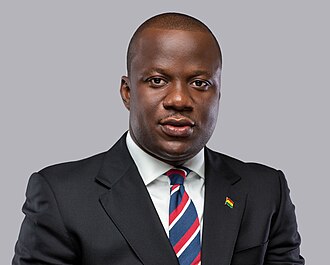The Member of Parliament for Damongo, Hon. Samuel Abu Jinapor, has formally petitioned the Dean of the Diplomatic Corps and Lebanese Ambassador to Ghana, H.E. Maher Kheir, to intervene through diplomatic channels in the ongoing controversy surrounding the Gran Canaria flights scandal.
In an official letter addressed to the ambassador, Mr. Jinapor urged the foreign diplomat to collaborate with Ghana’s security and intelligence agencies to uncover the full details of the “puzzle, conundrum, and controversy” that has stirred significant national and international concern.
The development follows a press conference held by the Minority Caucus on April 1, 2025, during which they raised alarm over critical national security concerns, particularly the suspicious landing of AirMed and Cavok Air flights in Ghana. These aircraft are alleged to have been involved in the transportation of illicit goods and substantial sums of money.
The issue has prompted widespread calls for an in-depth probe. President John Dramani Mahama, in response, has instructed state investigative bodies to take up the matter. The United Nations Office on Drugs and Crime (UNODC), along with security experts and concerned citizens, have also joined the call for a comprehensive investigation.
Rev. John Ntim Fordjour, Ranking Member on the Defence and Interior Committee of Parliament, emphasized the importance of safeguarding Ghana’s longstanding reputation as a beacon of peace and stability in Africa. “Ghana, in the past eight years, has been ranked favourably by global institutions as the second most peaceful country in Africa — even ahead of countries like Australia and Canada,” he stated at a recent press briefing.
Rev. Fordjour further noted the urgency to ensure that the country does not become a sanctuary for illicit operations such as drug trafficking, piracy, and money laundering under the current administration.
In his statement on April 8, Mr. Jinapor, a former Minister for Lands and Natural Resources, underscored Ghana’s international obligations in combating transnational organised crime. He referenced several global treaties and conventions that Ghana is a signatory to, including the 1961 Single Convention on Narcotic Drugs, the 1971 Convention on Psychotropic Substances, the 1988 Vienna Convention, and the 2000 UN Convention against Transnational Organised Crime.
“These international instruments impose a legal and moral duty on us to actively combat illicit drug trade and money laundering,” he stressed, adding that Ghana’s credibility on the world stage depends on its resolve to deal with such matters decisively and transparently.

